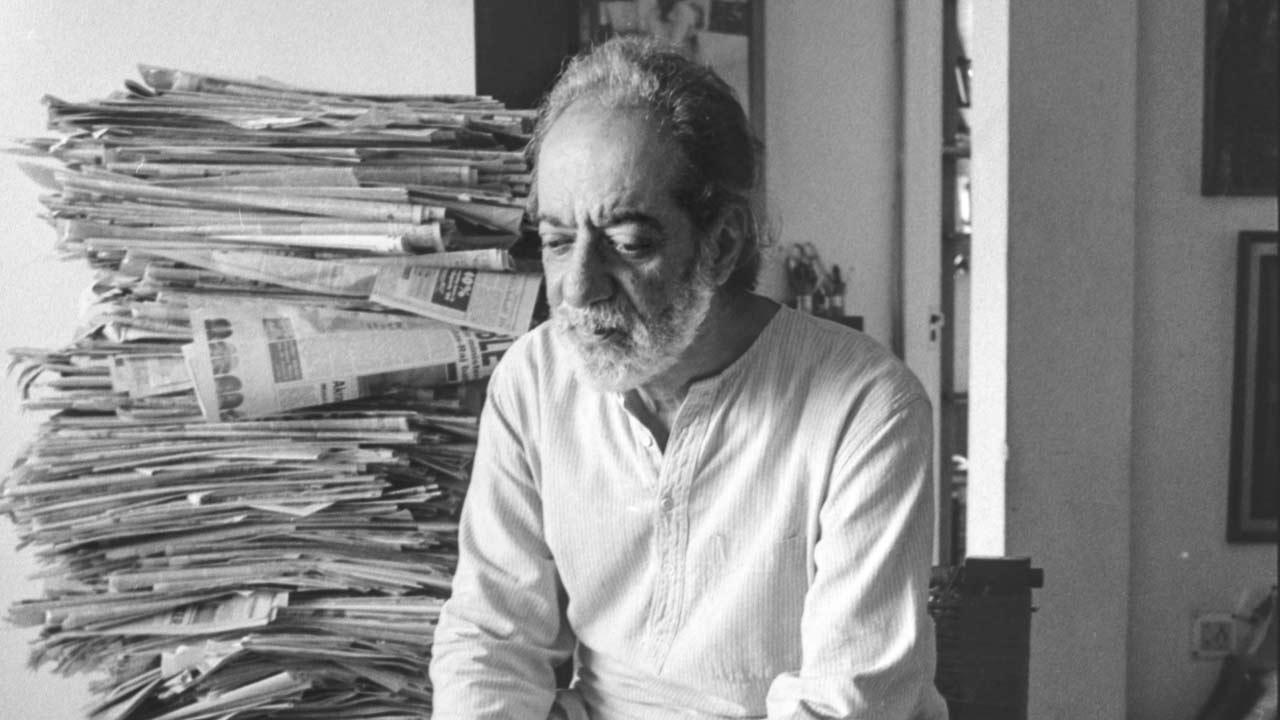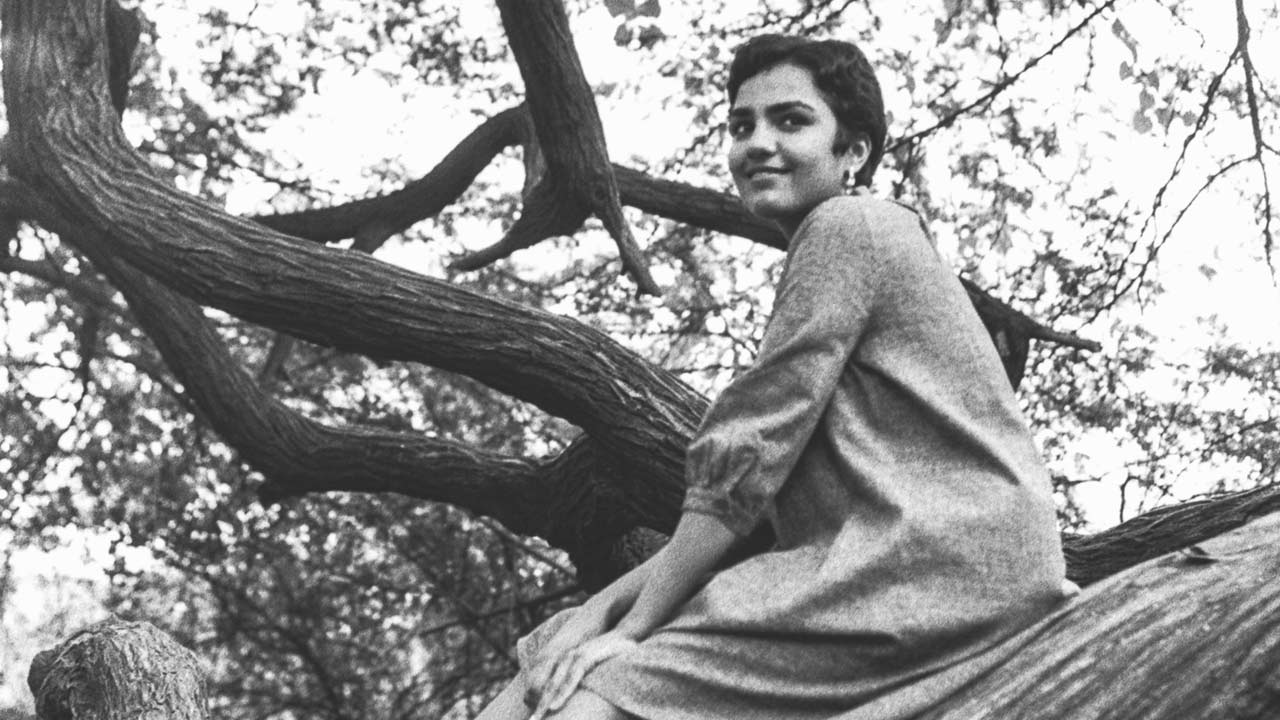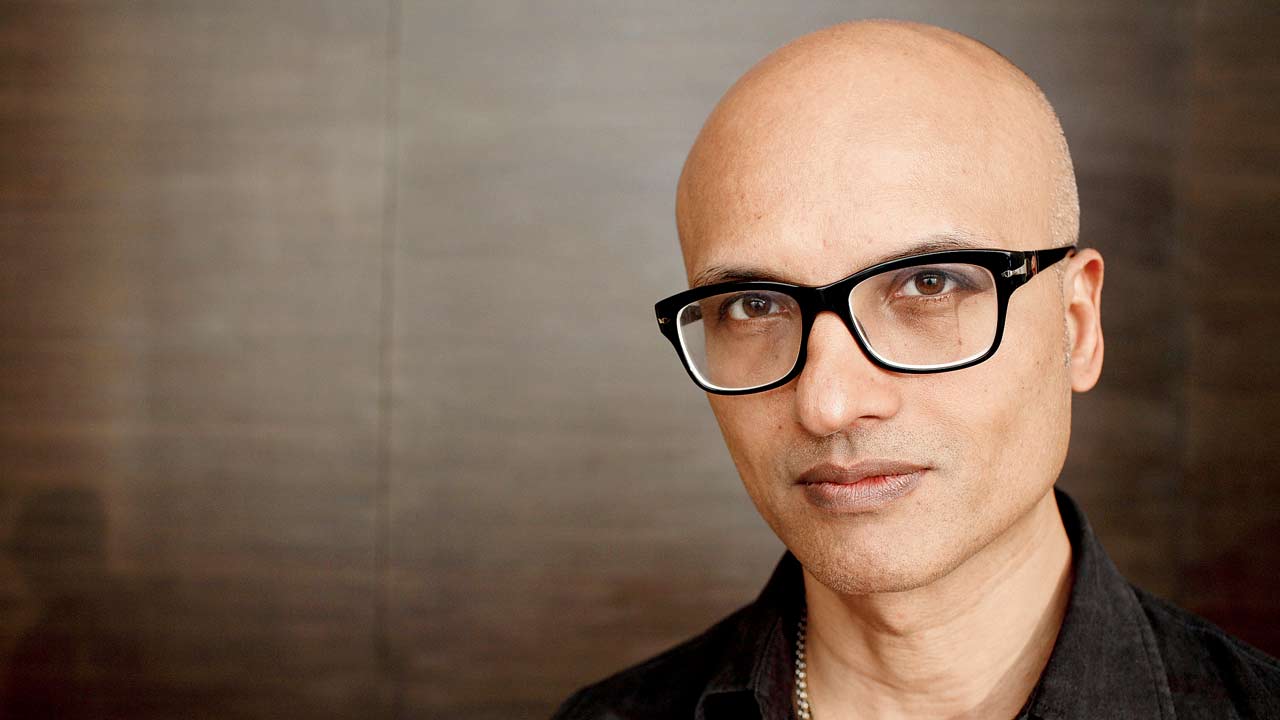Jeet Thayil’s definitive new anthology of Indian poetry breaks open the closed club of veterans to give voice to new-age poets, whose passion to articulate the changing political climate of our time he envies

Aditi Nagrath was born in 1994 in Delhi. Her family has lived, variously, in Moscow, Washington, Mandalay, London, Baku and Geneva. She is trained as a clinical psychologist. Adil Jussawalla was born in Bombay 1940. His jagged, deadpan lines, particularly in the poem Missing Person embody the city in which he was born and where he continues to live. Pics Courtesy/Madhu Kapparath, The Penguin Book of Indian Poets
It’s kind of a “poetry year” for Jeet Thayil. He tells us this, when we get on a call with him—our first one, despite having interviewed him twice before. On the first two occasions we connected over email to speak about his novels, The Book of Chocolate Saints (2017), and the more disruptive Names of the Women (2021) that turned the Bible on its head. Considering this writer has always been partial to Thayil’s fiction, we are looking out for more. “I was working on a novel,” he shares, “... and I thought I had finished, but I clearly wasn’t. I have a lot more to do [still].”
ADVERTISEMENT
For a better part of the last many months, it’s poetry that has consumed him. It started with The Penguin Book of Indian Poets, an anthology that’s also the subject of our conversation on this call; it’s not just massive in size—a nearly 900-page volume—but also in scale, comprising works of 94 poets. This was followed by work on a new edition of his book, These Errors are Correct, which has been out of print since 2010. “Meanwhile, I am writing new poems for the first time in 15 years. It’s just such a pleasure [to write poems] compared to fiction, which feels like work, you know. There’s nothing joyful about it, it’s like a 9 to 5 job, full of anxiety. And the pay-off is so far away. It’s years before you see it in print, whereas with a poem, in a day or two you have at least something.”

Making this exhaustive anthology complete are rare, previously unseen black and white analogue photographs of poets taken by Madhu Kapparath
Thayil’s just-released anthology, published by Penguin Random House, is a magnum opus that wasn’t initially intended to be such a colossal piece of work. Over three years in the making, Thayil was initially asked to update its last iteration, 60 Indian Poets (2008), but he instead “thought to overhaul the entire project”. Updating it, he says, would have just taken a month’s effort. “All I needed to do was go through the poets I had, reach out to them and ask if they had any new material. But as I started to work on it, I realised it was a completely new world from 2008. So much has happened in the world of poetry and in our country. Poets have responded to what’s happening around us in overtly passionate and political ways... I haven’t seen that happen in my life in India. For us poets in the ’80s and ’90s, politics wasn’t so enraging. At least we weren’t so engaged. That’s all changed. For me, it just didn’t make sense to put that same thing out again,” shares Thayil, who has worked as a journalist for 21 years, in Mumbai, Bangalore, Hong Kong and New York.
This anthology is a “completely new book”, he admits. “The essays have changed; even the selections of the poets who are in both the volumes, are different.”
There’s a gap of nearly 100 years between the oldest (born in 1924) and youngest poet (born in 2001) in this anthology. While that has broadened the scope of the text, and allowed room for diverse voices, age and the passage of time have also influenced the kind of poetry coming out of India, feels Thayil. “Right now in India, there are young poets who are writing so well, and working so seriously... this was really unheard of when I was a young poet. At the time, there were just half a dozen of them, no more. I guess it’s a lot to do with the Internet, and the increase in access you have to poetry from all over the world. In those days, we had to buy books, and often we didn’t have the money, so we had to borrow. Our ambit was narrower. It gives me hope for the future of Indian poetry.”

Jeet Thayil
When working on a definitive anthology, one that’s meant to be canonical, the tendency of editors is often to veer towards the veterans. Thayil agrees. “It’s always been this closed club with the usual suspects. But doing that kind of anthology would not just be uninteresting, it would be a crime. The point is, if I came across a 20-year-old poet, whose writing is excellent, and I didn’t include them, just because they are an unknown name, I’d feel guilty. I was [however] careful to pick the poets who I thought would be around at least 10 years from now.” He adds, “It’s unfortunate, but after the anthology was closed and I couldn’t make anymore changes, I had already found two more poets who I wished I had included in this book.” Thayil is talking about Zainab Ummer Farook and Prashant Parvatneni, both of them in their 20s. “That’s driving me slightly crazy.”
This is an interesting time to bring out the anthology, and as Thayil points out in his foreword, with the changing climate in India, “more urgent considerations are now at play”. There’s the poet Hamraaz, for instance, who goes by a pseudonym, because they feel they’d not be able to write these poems, if they were to worry about the consequences. Thayil says writing honest poetry is more difficult than it might have been 20 years ago. “At this point, whether you want to or not, there’s an element of self-censorship at work. At the back of your mind, you know there are people who are going to receive this work in the wrong way, and are going to read it not as a piece of literature, but as an anthem. We are going to see much more of that in the future. It will be rarer to come across poetry like Hamraaz’s. And who can blame them for not revealing their gender or identity.”
Making this exhaustive anthology complete are rare, previously unseen black and white analogue photographs of poets taken by Madhu Kapparath, a 30-year effort that Thayil describes as “brave and lonely”. Kapparath and Thayil first started working together in a magazine called Gentleman in the early ’90s, where the latter edited the literary section. “At the time, we came up with this idea called Writers At Work, which included a black and white portrait of a writer on one side of the double spread. On the other side, were 300 words where the writer discussed everything other than literature. During that time, Madhu really focussed on poets. He is a reader of poetry, and I don’t know what it is about him, but he absolutely believes in the myth of the poets. When Gentleman folded, we all got on with our lives, but Madhu did not,” remembers Thayil. “He kept taking pictures of poets for 30 years, for no reason at all, and at his own expense. It’s just insane and astonishing. In fact, right after we went to press and I told him we couldn’t make any changes to the book, he flew to Bhubaneswar to take a photograph of Jayanta Mahapatra, whose work is in the book. He [Jayanta] is now in his 90s, and doesn’t go anywhere. What Madhu has done, is that he has got another piece of historical gem for us. He is one of our greatest photographers, but unfortunately, just doesn’t market himself.”
 Subscribe today by clicking the link and stay updated with the latest news!" Click here!
Subscribe today by clicking the link and stay updated with the latest news!" Click here!







